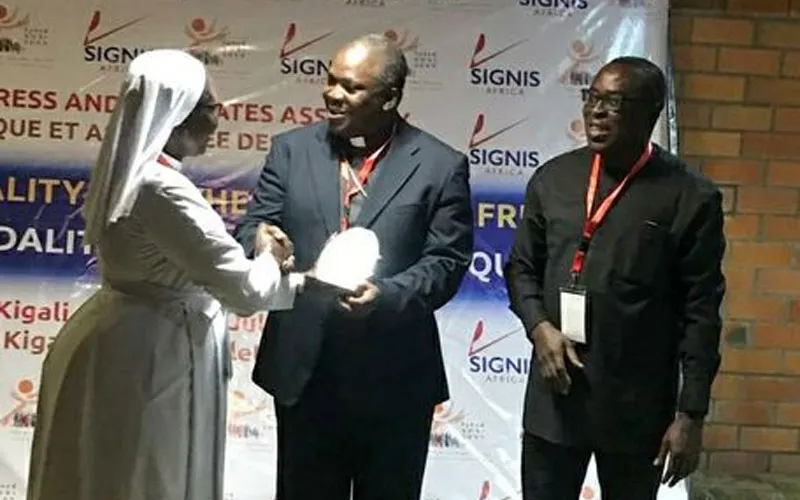Catholic communicators, Bishop Badejo said, “must rather act as a catalyst which raises and focuses attention on pastoral and social issues of justice, reconciliation, human development and other themes of importance to the mission of the Church.”
“Communication experts and practitioners like the members of Signis Africa gathered here have the task, the tools, the talent and the mandate to present events and information as a sharing in the intimate union which exists among the three Persons of the Trinity,” he said, adding, “This will ultimately be the test that they are working for true communion in the Church and striving to safeguard the truth.”
The Bishop who has been at the helm of Nigeria’s Oyo Diocese since November 2009 reminded members of the African region of the global network of Catholic media professionals that promotes “Media for a culture of peace” of their duty “to educate the African peoples to reconciliation in truth, and the promotion of justice and peace.”
Bishop Badejo made reference to Pope emeritus Benedict XVI’s Post Synodal Exhortation on the Church in Africa in Service to Reconciliation, Justice and Peace, Africae Munus, saying, “The media can make an important contribution towards the growth in communion of the human family and the ethos of society when they are used to promote universal participation in the common search for what is just.”
For such contribution to be realized, the President of CEPACS said in reference to media entities in Africa, “A solid formation in ethics and truthfulness is needed to help them avoid the attraction of the sensational, as well as the temptation to manipulate information and to make easy money or fame.”
It is the responsibility of African Communications experts to “ensure that Christian principles influence the practice of the profession, including the technical and administrative sector. To enable them to exercise this role properly, they need to be provided with a wholesome human, religious and spiritual training,” he said, citing Pope John Paul II’s Post Synodal Exhortation on the Church in Africa and its evangelizing mission, Ecclesia in Africa.
Bishop Badejo called on members of the African region of the global network of Catholic communicators bringing together radio, television, cinema, video, media education, Internet, and new technology professionals from over 100 countries to facilitate the transition from statements “to practical and sustained action”.
“It is necessary to pass from statements issued in this manner to practical and sustained action. Catholic communications media can help by becoming the social memory of such issues, raising them consistently in the public space, long enough for them to be acted upon," he said.
He further urged members of SIGNIS Africa to help Dioceses and other Catholic institutions to periodically assess and monitor progress in the implementation of communiques and directives, and policies issued especially on communications.
The President of CEPACS called for the establishment of a networking system for Catholic media initiatives and institutions in Africa.








